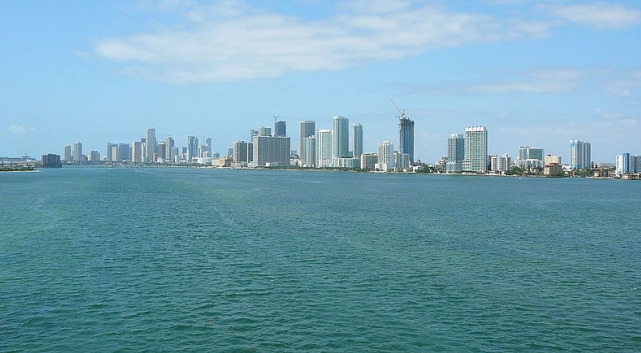[dropcap]J[/dropcap]ust below the surface of Biscayne National Park, sergeant majors dart around coral sprouting on the wreck of the 112-foot long Mandalay, a luxury yacht once trimmed in brass and ivory. Blue parrotfish and a rainbow of tropical species eat, mate and fight to survive among the ribs of the rotted hull.
Beauty is never far from peril aboard the Mandalay. Life bustles.
But look closer and something’s missing: big fish. No grouper or mutton snapper crowd the wreck, key residents on a healthy Florida reef.
Having Miami as a next-door neighbor has taken a severe toll on the 270-square-mile park over the last three decades. Over-fishing has slammed stocks — more than 70 percent of 17 species are down — while anchors, traps lines and heavy boat traffic have crushed corals and raked seagrass meadows. More than 11,000 prop scars mar flats. Only six percent of its reefs remain. On Friday, the National Park Service will unveil a new general management plan intended to start reversing the decline with a suite of new rules for visitors that will, for the first time, include a controversial “no-fishing” marine reserve.








Norman Duncan · U of Miami
Message sent to Keep America Fishing “Stop the Biscayne lockout”, “BNP Access Denied” request:
I was involved in the efforts that contributed to the creation of Biscayne National Monument in 1969.
As a recreational angler, I am extremely glad that the National Park Service has implemented a Marine Protection Area in Biscayne National Park. I ask for your help to stop the unwarranted opposition to this closure.
The marine reserve being proposed is supported by science and will have a long-term beneficial impact on the communities that are dependent on recreational fishing access to Biscayne National Park.
The Florida Fish and Wildlife Conservation Commission, has been odds with the NPS regarding control of the fisheries in BNP. The FWC opposes the National Park Service’s plan, saying that the proposed marine reserve is unnecessarily restrictive and other less restrictive management options can provide healthy fisheries resources while still allowing for public access. At times, the track record of the FWC’s management of the fisheries and wildlife seems to be politically motivated.
As your constituent, I hope you and your colleagues will act to preserve our fisheries for future generations.
Note: A couple of weeks ago my wife and I went on the dive boat in John Pennekamp Coral Reef State Park, we saw a mutton snapper over 15 pounds and several black grouper even larger. Fish of this size have not been seen or caught in the reef areas of Biscayne National Park for years.